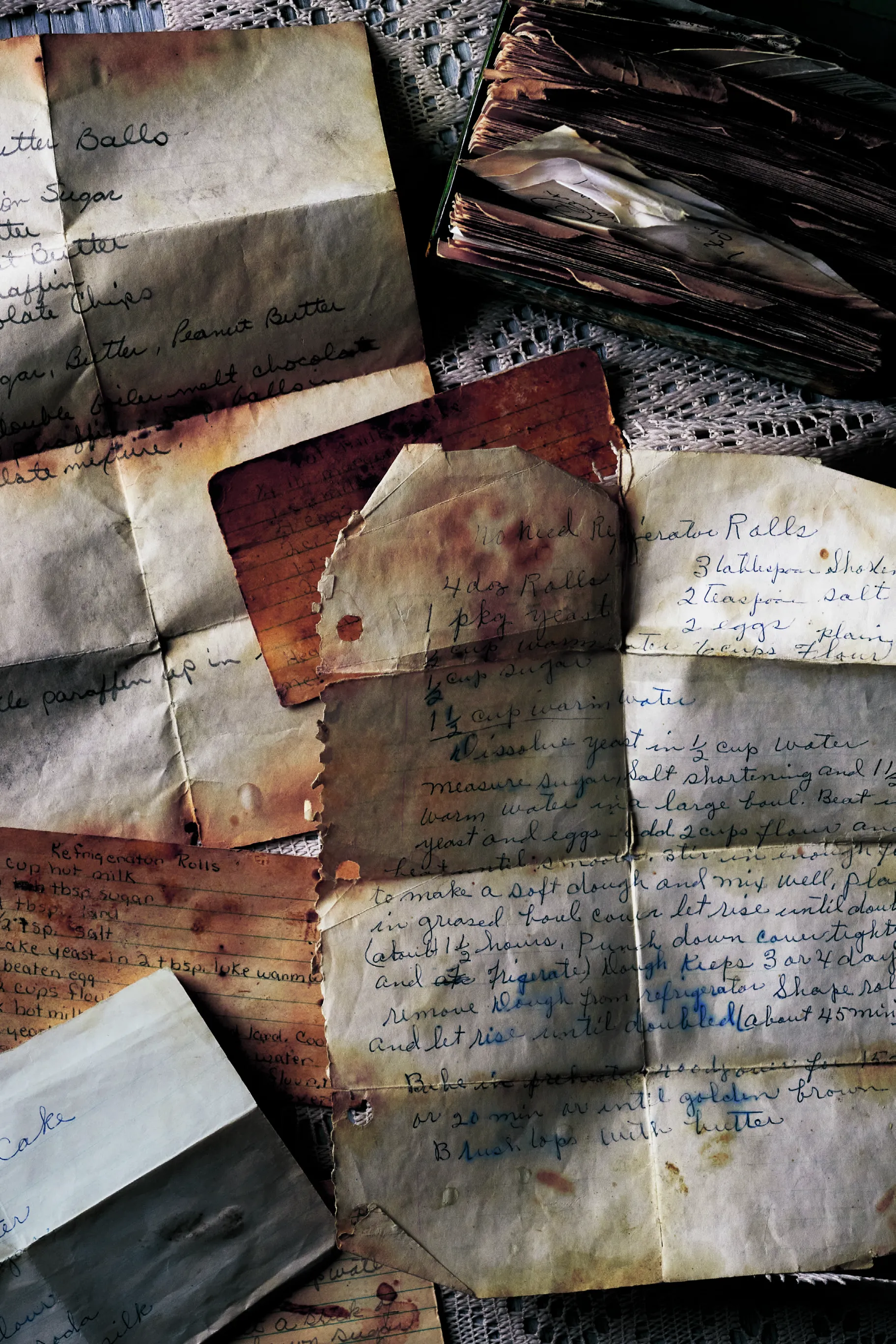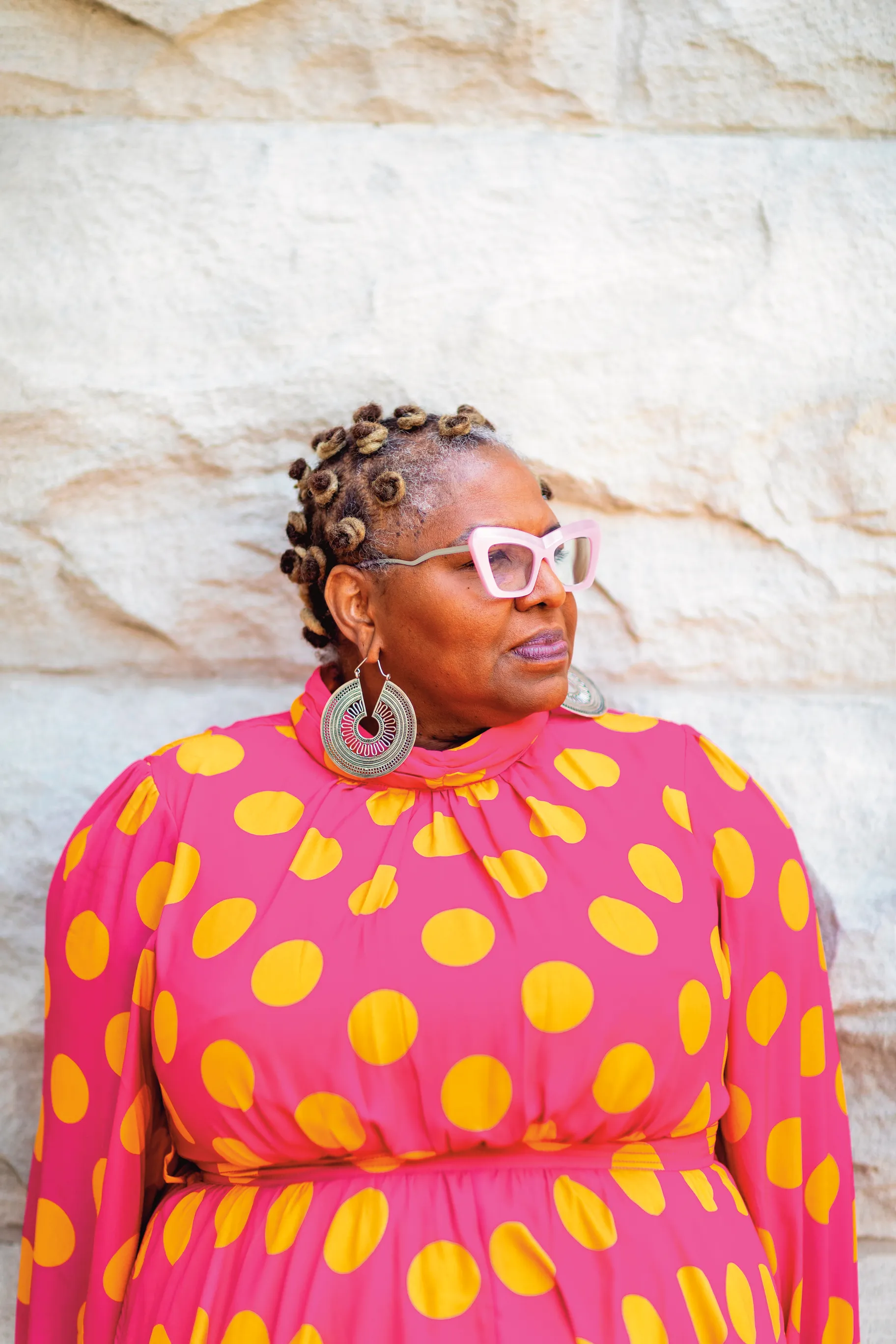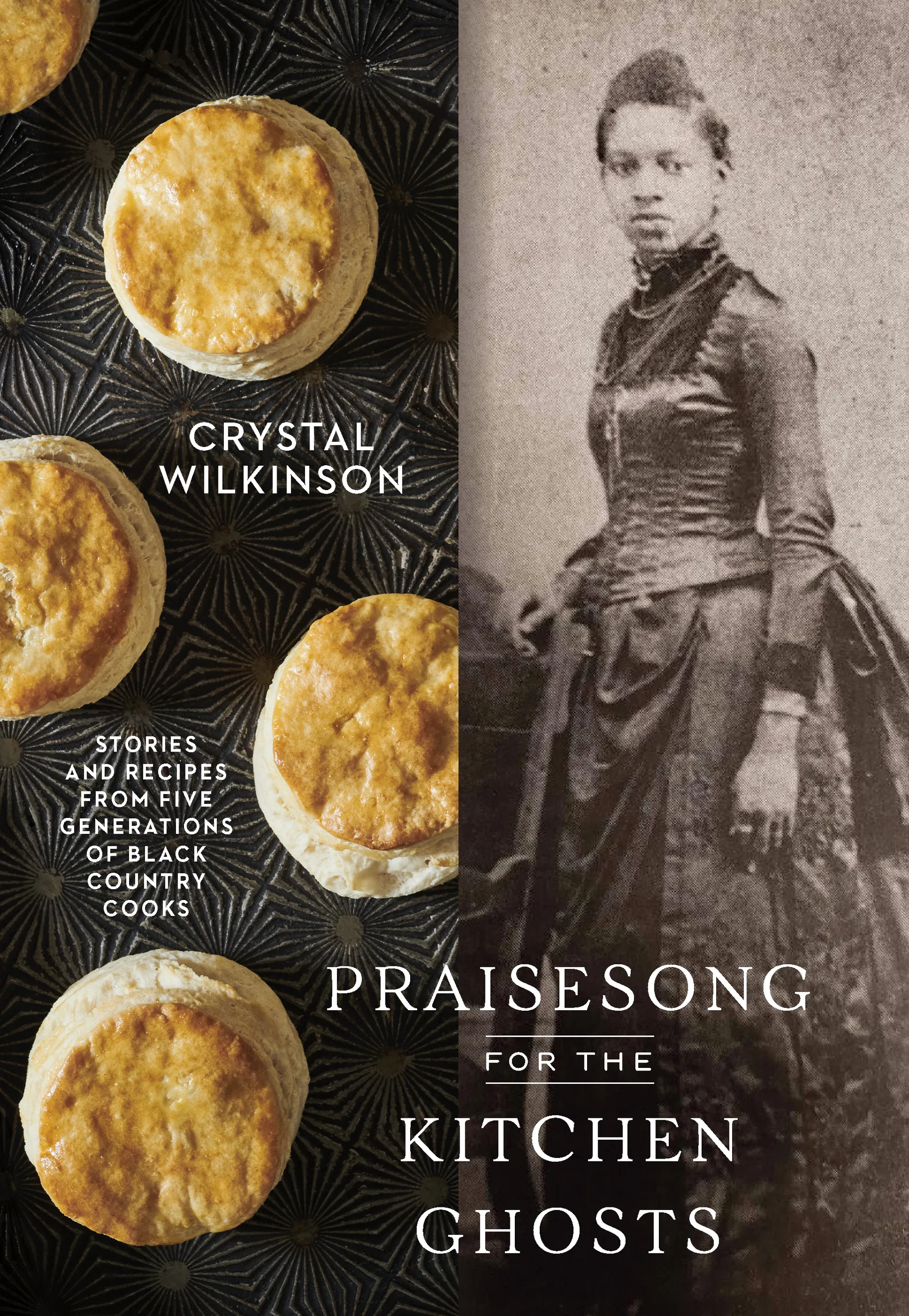Marry a poet to material of her own lineage with stories and memories of times spent in kitchens and you get Crystal Wilkinson's extraordinary book, Praisesong for the Kitchen Ghosts. She teases out a complex web of attachment to Black Appalachia and those who came before.
Born in Ohio, Wilkinson grew up on her grandparents' farm in Indian Creek, Kentucky, where they were the only African American family in the area. She keeps a tin box filled with recipes handwritten on notebook paper and the backs of envelopes. Some are in her grandmother's cursive while others were dictated to Wilkinson.

Crystal Wilkinson keeps handwritten recipes she has had since high school. Photo by Kelly Marshall.
Many people are surprised to learn of thriving Black communities in Appalachia. "I think people think of the word 'rednecks' or they see a particular image they've seen on television or film," Wilkinson says. "It's a place they don't expect to find Black people. Often, the idea of rural and white, and urban and black, are conflated in our realities and in our imagination."

Crystal Wilkson was the former poet laureate of Kentucky. Photo by Carsen Bryant.
Wilkinson compares the foodways of Southern Appalachia to those of the rest of the South. While collard greens are more common in the deep South, she grew up eating kale, mustard, and turnip greens. Rather than barbecuing meat, ham is usually cured to preserve it for colder months. Wilkinson remembers spreading out potatoes in the attic to save for winter. When she went blackberry picking in Kentucky, she always wore long sleeves and watched for copperhead snakes. Today, she boils down the berries and serves them with biscuits.
Praisesong Biscuits
Makes 8 3-inch biscuits
I have been baking biscuits all my life, in search of the perfect recipe for decades. I tried for years to make them like my grandmother’s, but she never wrote down her recipe (of course). So, this recipe is mine. I think it’s just right—at least it seems to be the one my family likes best. An ideal biscuit has a slightly crisp crust paired with a tender softness inside and can hold up to jelly or gravy or a small piece of meat for a tasty morsel of a sandwich. The key to tender biscuits is not to mess with the dough too much. I like to see bits of butter in it, so the biscuits bake up with tiny pools of buttery goodness inside.
Ingredients
- 2 to 2¼ cups self-rising flour, plus more as needed
- 4 tablespoons (¼ cup) vegetable shortening, at room temperature
- 4 tablespoons (½ stick) cold salted butter, plus more for serving
- 1 cup whole milk
Instructions
-
Place a rack in the middle position and preheat the oven to 400°F. In a large mixing bowl, combine 2 cups of the flour with the shortening and use a pastry cutter or two forks to blend them into a coarse meal.
-
Cut the cold butter into pea-size pieces. Add them to the bowl and stir to coat with the flour, then pour in the milk, using a fork to stir the mixture into a soft, shaggy dough. Add a bit more flour, as needed. Do not overmix.
-
Generously flour your work surface and your 3-inch round biscuit cutter (or inverted glass). Transfer the dough there and knead it six times—only adding a little more flour, as needed, to keep it from being too sticky and just to keep it workable.
-
Gently pat or roll out the dough to a thickness of about ½ inch. Use the biscuit cutter to cut straight down, without twisting, to form a total of 8 biscuits. Gently reroll the scraps to use all the dough.
-
Place the biscuit rounds on an ungreased baking sheet, close together but not touching. Brush off any excess flour. Bake on the middle rack until lightly browned on top and bottom, 12 to 15 minutes.
-
Butter the biscuit tops and serve hot.
Biscuits with Blackberry Soup
Serves 2
This simple recipe satisfies a craving for blackberries. It is thinner than a compote and a perfect way to use fresh or frozen blackberries; fresh biscuits soak up the juices for a sweet, comforting breakfast. Or you can delight your guests by adding a dollop of whipped cream and serving it as dessert.
Ingredients
- ¼ cup sugar
- 12 ounces fresh blackberries, rinsed (2 generous cups)
- 4 Praisesong Biscuits (recipe above), preferably just baked or still warm
Instructions
-
Combine the sugar, ½ cup water, and the berries in a medium saucepan over medium heat. Cook for about 8 minutes, stirring often, until the sugar has dissolved and the berries have softened and yielded some of their juices. The “soup” will be only slightly thickened. Remove from the heat.
-
Equally divide the berry soup between two individual shallow bowls. Place 2 biscuits in each bowl and serve.
Wilkinson, the former poet laureate of Kentucky, recalls standing on a chair, watching her grandmother tell stories about her own mother as she worked. "I think it's important to have something tangible that evokes memories for you," she says. She still has the last green beans canned by her grandmother, who died in 1994.

"Praisesong for the Kitchen Ghosts: Stories and Recipes from Five Generations of Black Country Cooks" started with the birth of one of Crystal Wilkinson's essays. Photo courtesy of Clarkson Potter.
